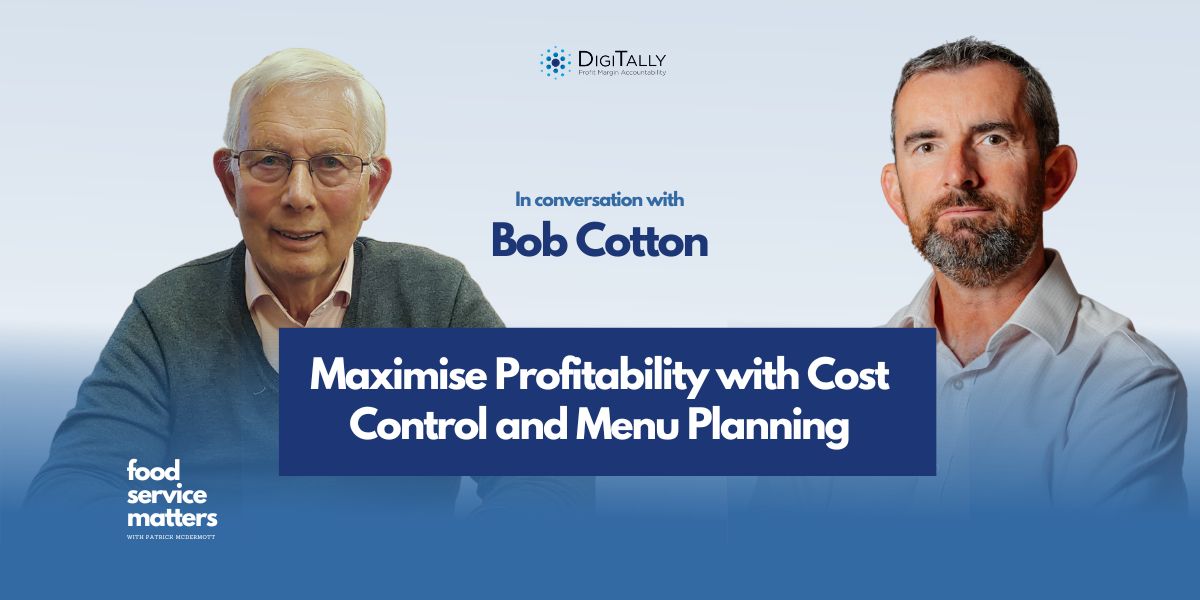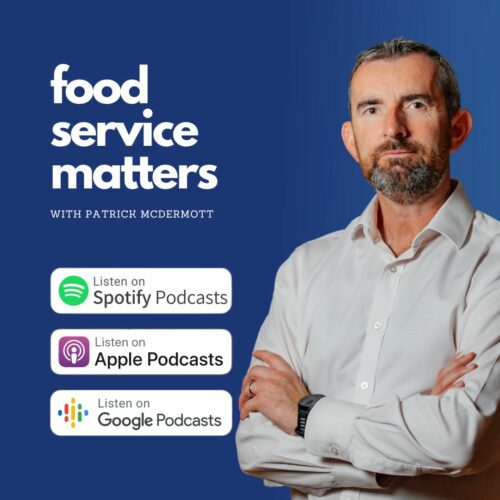Navigating today’s challenging economic landscape is no easy task for food service businesses. With costs rising across the board, providing quality without alienating money-conscious customers requires a carefully balanced budgeting strategy.
In episode six of the Food Service Matters podcast, host Patrick McDermott interviews Bob Cotton, former head of the British Hospitality Association (BHA), now known as UKHospitality, the leading trade body representing all businesses in the UK’s hospitality sector.
Here, we highlight Bob Cotton’s insights from his impressive career in the industry, emphasising the importance of precise menu planning and cost control as key drivers of business profitability.
Maintain budgets and forecasting
The food service industry operates on tight margins. Bob explains that effective menu planning and meticulous cost control are essential for maximising profitability. “They form the absolute basis of budgeting and making your money,” he says, explaining that these tools enabled hospitality giants to succeed.
“That was where Lord Forte made his money and learnt his trade, and that’s why the whole ethos at Trusthouse Forte and Gardner Merchant was essentially menu planning and cost control.”
As Bob recounts, industrial caterers in the 1970s knew their food costs down to the smallest detail. “So, if you had an A10 tin of beans, how many portions would that be? A lump of cheese, how many slices? A tin of ham, how many slices? Everything was down to the halfpenny on cost control,” he emphasises.
By paying close attention to exact portion costs and potential yields, food service companies can make smarter purchasing and production decisions to hit their financial targets.
Balance creativity with profit goals
While a strong budgeting strategy is crucial, Bob also stresses that success hinges on finding the perfect balance between financial acumen and creativity in the kitchen. He cautions against complacency in menu planning, pointing out, “One of the biggest problems is that chefs get lazy. They stay comfortable.”
Instead, Bob advocates using creativity to transform low-cost ingredients into innovative menu items, thus enhancing profitability. “Buy cheaper cuts of meat and add some value to them,” he advises, “because that’s what being a chef is all about: adding value to the materials you buy and selling them on.”
Limiting menu choices also improves consistency and reduces waste. Therefore, instead of a long list of different menu options, customers should be offered a smaller selection of quality dishes. As Bob recommends, “If you’re running a restaurant, offer three starters, three main courses, plus a vegetarian option, and three desserts, plus cheese. Keep it simple and change it regularly. That way, there’s less wastage and customers are happy.”
Smart purchasing combined with skilled preparation and creative recipes allow businesses to hit profit goals while keeping menus exciting. This balance, according to Bob, is what sets successful enterprises apart.
As the food service industry evolves, Bob Cotton’s advice remains as relevant as ever. His emphasis on managing spending efficiently and keeping menu offerings fresh provides a balanced approach to maximising profitability. These core principles are a recipe for success, no matter what new challenges may arise for the industry.
To listen to Patrick’s full interview with Bob Cotton, check out the Food Service Matters podcast on Spotify, Apple Podcasts or Google Podcasts.
Patrick is CEO of DigiTally, which is playing an increasingly important role as an intuitive and interconnected simple food service software that helps save time, increase margins and combat food waste. Keen to learn more? Let’s talk! Book a 30-minute call with Patrick and get your demo set up today.




